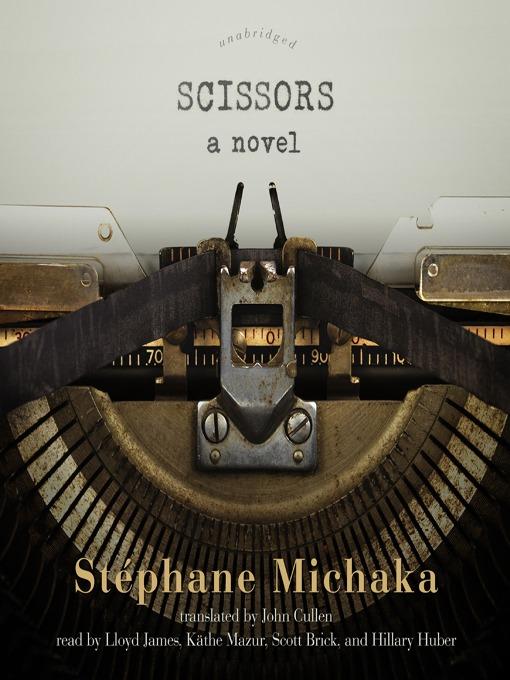
Scissors
A Novel
کتاب های مرتبط
- اطلاعات
- نقد و بررسی
- دیدگاه کاربران
نقد و بررسی

Fans of the American writer Raymond Carver, known for his minimalist short stories, will relish this novel, inspired by Carver's real life. Narrators Lloyd James, Kathe Mazur, Scott Brick, and Hillary Huber come together in this relatively short volume to give voice to a cast of characters based on the people closest to Carver. The narrators come and go, changing points of view after short pauses that alert the listener that another perspective is coming. Scott Brick's rendition of Carver's heavy-handed editor is infused with an arrogance laced with irony, delivered in a deep, rich baritone. Lloyd James's characterization of Carver himself is inflected with the shifting intonations of a man who is uncertain about his place in the world. M.R. (c) AudioFile 2013, Portland, Maine

June 17, 2013
Based on the relationship between Raymond Carver and his editor, this novel from Michaka plods ponderously through a morass of sources (duly noted in the bibliography) in order to offer an unremarkable reconstruction of the difficult and critical period before the acclaimed short-story writer made it to the big time. The alternating first-person monologues, featuring Carver, his editor, and Carver’s first wife, Maryann Burk (“Marianne”), are laborious and stilted. The conversational quality remains elusive, so redundant are the dialogues and so monothematic the characters’ preoccupations. Interspersing a few (fictional) Carver short stories into the mix is the final blow, obliterating any lingering illusion of a narrative. This isn’t to say the novel fails as an enlightening foray into the already notorious dynamic between a talented writer and his arrogant, conceited editor. What writer hasn’t dreamed of telling a particularly ruthless editor his cuts amount to “Two and a half pages of con artistry. Some cunning tricks to take the reader in.... A cold wind blows through it from beginning to end.” Michaka’s conclusion—that Carver’s success may not have been worth it—is valid; too bad his argument is so lifeless.

























دیدگاه کاربران